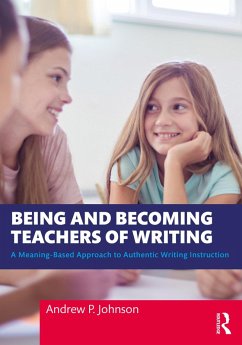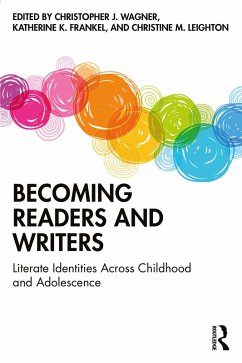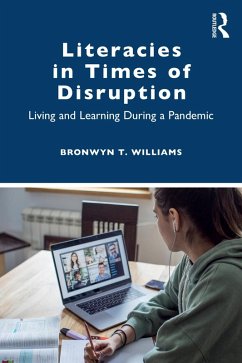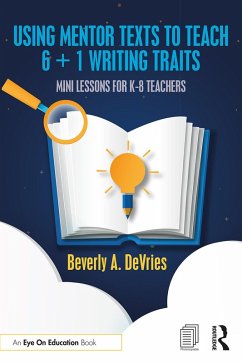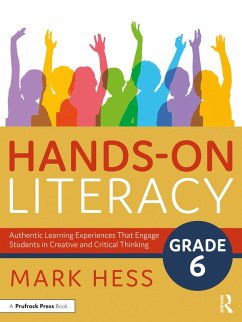
Assessing Writing to Support Learning (eBook, ePUB)
Turning Accountability Inside Out
Versandkostenfrei!
Sofort per Download lieferbar
37,95 €
inkl. MwSt.
Weitere Ausgaben:

PAYBACK Punkte
19 °P sammeln!
In this book, authors Murphy and O'Neill propose a new way forward, moving away from high-stakes, test-based writing assessment and the curriculum it generates and toward an approach to assessment that centers on student learning and success. Reviewing the landscape of writing assessment and existing research-based theories on writing, the authors demonstrate how a test-based approach to accountability and current practices have undermined effective teaching and learning of writing. This book bridges the gap between real-world writing that takes place in schools, college, and careers and the w...
In this book, authors Murphy and O'Neill propose a new way forward, moving away from high-stakes, test-based writing assessment and the curriculum it generates and toward an approach to assessment that centers on student learning and success. Reviewing the landscape of writing assessment and existing research-based theories on writing, the authors demonstrate how a test-based approach to accountability and current practices have undermined effective teaching and learning of writing. This book bridges the gap between real-world writing that takes place in schools, college, and careers and the writing that students are asked to do in standardized writing assessments to offer a new ecological approach to writing assessment.
Murphy and O'Neill's new way forward turns accountability inside out to help teachers understand the role of formative assessments and assessment as inquiry. It also brings the outside in, by bridging the gap between authentic writing and writing assessment. Through these two strands, readers learn how assessment systems can be restructured to become better aligned with contemporary understandings of writing and with best practices in teaching. With examples of assessments from elementary school through college, chapters include guidance on designing assessments to address multiple kinds of writing, integrate reading with writing, and incorporate digital technology and multimodality. Emphasizing the central role that teachers play in systemic reform, the authors offer sample assessments developed with intensive teacher involvement that support learning and provide information for the evaluation of programs and schools.
This book is an essential resource for graduate students, instructors, scholars and policymakers in writing assessment, composition, and English education.
Murphy and O'Neill's new way forward turns accountability inside out to help teachers understand the role of formative assessments and assessment as inquiry. It also brings the outside in, by bridging the gap between authentic writing and writing assessment. Through these two strands, readers learn how assessment systems can be restructured to become better aligned with contemporary understandings of writing and with best practices in teaching. With examples of assessments from elementary school through college, chapters include guidance on designing assessments to address multiple kinds of writing, integrate reading with writing, and incorporate digital technology and multimodality. Emphasizing the central role that teachers play in systemic reform, the authors offer sample assessments developed with intensive teacher involvement that support learning and provide information for the evaluation of programs and schools.
This book is an essential resource for graduate students, instructors, scholars and policymakers in writing assessment, composition, and English education.
Dieser Download kann aus rechtlichen Gründen nur mit Rechnungsadresse in A, B, BG, CY, CZ, D, DK, EW, E, FIN, F, GR, HR, H, IRL, I, LT, L, LR, M, NL, PL, P, R, S, SLO, SK ausgeliefert werden.





